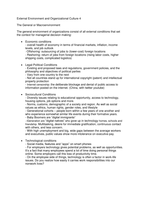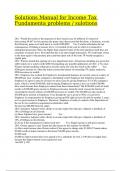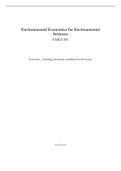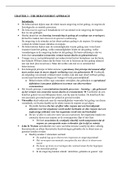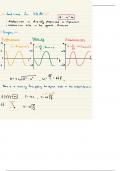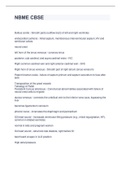Steven Lukes - Some Problems about Rationality
● Problem: when I come across a set of beliefs which appear prima facie irrational (e.g. in
other, ‘primitive’ cultures), what should be my attitude towards them?
○ are there alternative standards of rationality?
● Five possible answers to the problem:
○ 1. ostensible irrationality doesn’t matter, because the beliefs are symbolic
■ they are a way of describing real human behaviour or
relations
■ religion etc can be taken as real because it is true in its
context
● we are concerned with relevance of
beliefs, not their ultimate validity
■ so we can dodge the question, because it is nonsensical,
irrelevant or misdirected
○ 2. we can apply criteria to modern and primitive beliefs which leave the
latter looking quite incomprehensible
■ we can never know the rationality or irrationality of
other cultures because the origins of beliefs etc are untraceable
○ 3. primitive magical/religious beliefs are attempts to explain phenomena,
so they can satisfy rationality by virtue of their rational procedures of though/observation
■ they can, however, be mistaken, and be judged as
unsuccessful explanations (when compared to e.g. science)
■ magic and science have procedure in common -
classification of phenomena by the similarities that exist between them
● the difference is that the magician
characterises the connection between similar phenomena as mystical,
whereas it is simply an ideal connection in the magician’s mind (it is
subjective and not objective)
● both aim at grasping causal connections
○ science is better in this
respect
■ difference exists between closed and open cultures
(shaky ground?)
● closed cultures have lack of awareness
of alternatives, sacredness of beliefs, and anxiety about threats to them
● open cultures do not have these features
■ so, this answer is characterised by the belief that prima
facie irrational beliefs can be rational in method, purpose and form, though
unscientific and irrational in content
○ 4. primitive belief systems are coherent (intellectually or logically?), but
may fail to accord with reality, may not accord with the rules of logic (Lévy-Bruhl)
■ Lévi-Bruhl seems to want to suggest that the coherence
may be logical - different patterns of thought do not mean different reasoning
● does this imply relativism of the rules of
logic?
■ seems to be an uneasy compromise between claiming
● Problem: when I come across a set of beliefs which appear prima facie irrational (e.g. in
other, ‘primitive’ cultures), what should be my attitude towards them?
○ are there alternative standards of rationality?
● Five possible answers to the problem:
○ 1. ostensible irrationality doesn’t matter, because the beliefs are symbolic
■ they are a way of describing real human behaviour or
relations
■ religion etc can be taken as real because it is true in its
context
● we are concerned with relevance of
beliefs, not their ultimate validity
■ so we can dodge the question, because it is nonsensical,
irrelevant or misdirected
○ 2. we can apply criteria to modern and primitive beliefs which leave the
latter looking quite incomprehensible
■ we can never know the rationality or irrationality of
other cultures because the origins of beliefs etc are untraceable
○ 3. primitive magical/religious beliefs are attempts to explain phenomena,
so they can satisfy rationality by virtue of their rational procedures of though/observation
■ they can, however, be mistaken, and be judged as
unsuccessful explanations (when compared to e.g. science)
■ magic and science have procedure in common -
classification of phenomena by the similarities that exist between them
● the difference is that the magician
characterises the connection between similar phenomena as mystical,
whereas it is simply an ideal connection in the magician’s mind (it is
subjective and not objective)
● both aim at grasping causal connections
○ science is better in this
respect
■ difference exists between closed and open cultures
(shaky ground?)
● closed cultures have lack of awareness
of alternatives, sacredness of beliefs, and anxiety about threats to them
● open cultures do not have these features
■ so, this answer is characterised by the belief that prima
facie irrational beliefs can be rational in method, purpose and form, though
unscientific and irrational in content
○ 4. primitive belief systems are coherent (intellectually or logically?), but
may fail to accord with reality, may not accord with the rules of logic (Lévy-Bruhl)
■ Lévi-Bruhl seems to want to suggest that the coherence
may be logical - different patterns of thought do not mean different reasoning
● does this imply relativism of the rules of
logic?
■ seems to be an uneasy compromise between claiming


